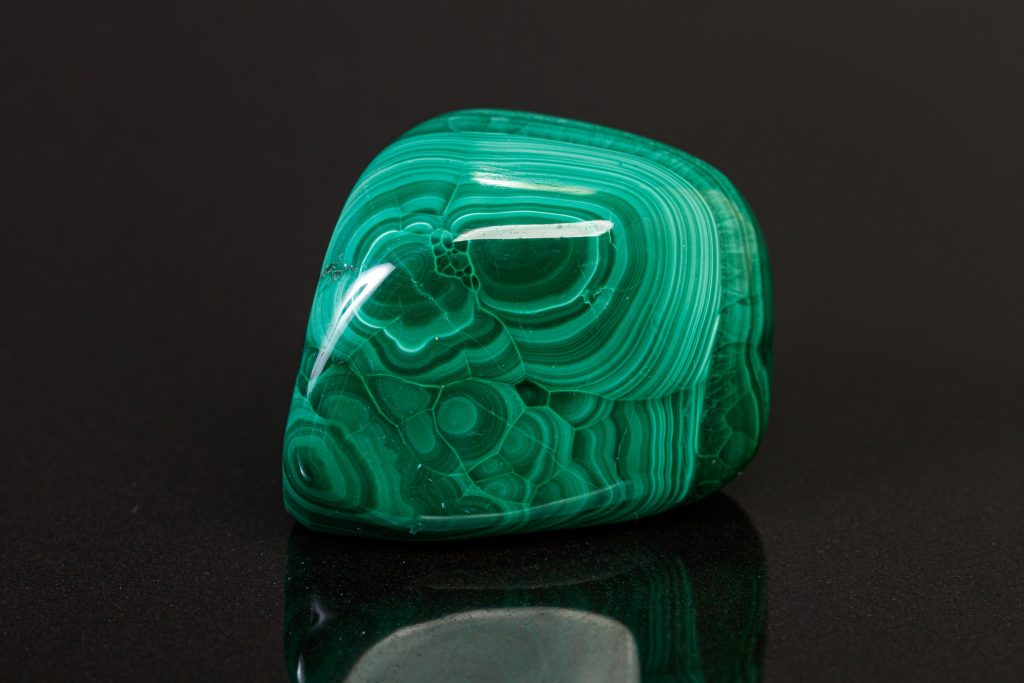Last Updated on December 29, 2023
With it’s striking green color palette and distinctive banded texture patterns, malachite is easily one of the most unique and desirable gemstones.
Ranging from bright pastel greens, to rich dark tones, malachite’s beauty is one that is often replicated using imitation materials hoping to mimic it’s natural beauty.

How to tell if malachite is real?
Because of malachite’s unique and dazzling appearance, it has become a common target for counterfeit versions made of glass, clay, and other synthetic materials.
Fake malachite often presents in shades of medium green and black with repeating linear patterns throughout the piece. Authentic malachite boasts a blend of dramatic greens, ranging from soft, pale tones, to deeply rich and dark shades. Real malachite features an assortment of gorgeous inorganic patterns, such as swirls, rings, and stripes throughout the stone.
How to test if malachite is real?
Testing malachite for authenticity can be done using three simple techniques:
Surface check
Malachite has distinctive physical characteristics that set the stone apart from counterfeit versions.
Unlike glass, plastic, or clay stones, authentic malachite should feel heavy, dense, and cold to the touch.
Synthetic malachite will feel much lighter, appear overly shiny, and may become warm after being held in the palm of the hand after a few moments.
Color test
Authentic malachite comes in an astonishing number of shades of green that are not easily replicated by synthetic stones.
To verify if your malachite stone is authentic, visually inspect the stone for unique swirl, ring, wave, and striped patterns outlined in soft dark green bands organically distributed throughout the stoneface.
Harsh black lines and a uniform linear pattern are tell-tale signs of a counterfeit malachite stone.
Malachite Scratch test
Because malachite registers 3.5 to 4 on the Mohs scale, the stone is susceptible to scratches from harder materials.
To test if the malachite piece is real or counterfeit, scratch a small area of the stone’s surface with an item registering higher than 4 on the Mohs scale, such as a piece of glass or steel file.
If the stoneface remains unscratched, the malachite piece in question may not be authentic.
Commonly asked questions
When considering purchasing a piece of malachite, you might ask:
What does malachite look like?
Genuine malachite comes in a variety of shades of green and should appear opaque rather than transparent.
An authentic malachite stone will feature organic patterns with soft bands of dark green that melt effortlessly into the coloring of the stone.
Can you scratch malachite?
Malachite is a soft stone that is typically treated with wax or resin to help protect the stone from scratches and other damage.
A protective coating of wax or resin can increase the value of authentic malachite by increasing durability and preserving the stone for many years.
Ready to buy malachite?
Malachite is a beautiful and unique stone that features a dramatic color palette and amazing organic shapes.
With rich tones, distinctive patterns, and a powerful physical presence, it’s no surprise this gorgeous stone is often forged using synthetic material.
But with a few simple techniques, verifying the authenticity of a malachite gemstone can be done by anyone looking to add this stone to their collection.



